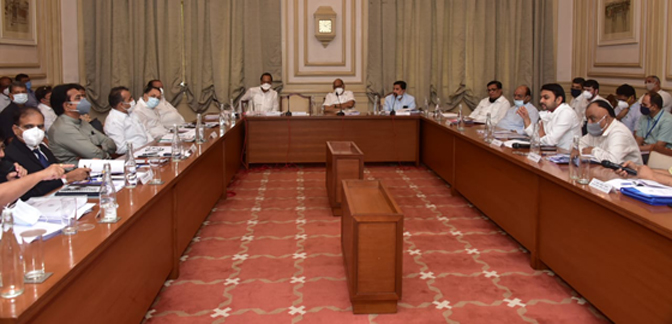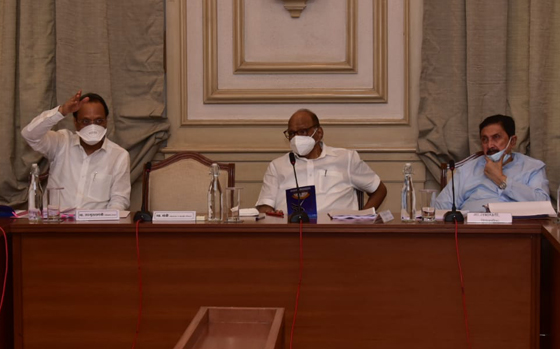Unable to find any concrete assurance from the Prime Minister on the issue of recent amendments in the Banking Regulations Act, NCP Supremo Sharad Pawar has moved the Maharashtra state machinery to amend the state co-op act so as to offset the impact of the BR Act amendments.
Dilip Walse Patil, Home Minister in the Maharashtra government has said the state govt would amend the Cooperative Societies Act, 1960, reports PTI. Patil who headed the national body of sugar co-ops before his new avatar as Minister, is a veteran co-operator.
Patil’s statement of changing the state co-op act springs from the fact that NCP Supremo Sharad Pawar is not happy with the recent amendments in the Banking Act and has said so not only to the Prime Minister but also to the newly appointed Cooperation Minister Amit Shah.
Talking to reporters soon after the meeting which was presided over by Sharad Pawar, Dilip Walse Patil said the meeting discussed the consequences of the recent amendments to the Banking and Cooperatives Act by the Centre putting cooperative banks under the RBI”s control.
A study group has been set up to draft the proposed amendment to the state law. NCP sources said the study group would submit their recommendations soon and the same would be placed before the Cabinet for approval.
Earlier, NCP Supremo Sharad Pawar had an hour-long meeting with the Prime Minister in which he discussed the Banking Regulation Amendment Act 2020. Pawar impressed on the Prime Minister that the amendment is in conflict with the 97th CAA. He stressed that matters pertaining to ‘incorporation, regulation and winding up’ in addition to matters relating to ‘Banking’ are exclusive domains for State Legislation.
Pawar followed the meeting by writing a letter to Modi detailing his points of disagreement. He also quoted the judgment of a Constitution Bench of the Hon’ble Supreme Court of India in Pandurang Ganapati Chaugule v. Vishwasrao Patil Murgud Sahakari Bank Ltd.’
“The Supreme Court had observed that The Co-operative banks run by the Co-operative Societies registered under State Legislation w.r.t. the aspects of incorporation, regulation and winding up’, in particular, w.r.t. the matters which are outside the purview of Entry 45 of List I of the Seventh Schedule of the Constitution of India, are governed by the said legislation relatable to Entry 32 of List II of the Seventh Schedule of the Constitution of India”, says Pawar.
NCP leader also felt that the Banking Amendment is in conflict with the Provisions of State Co-operative Societies Act. “The powers bestowed on the Reserve Bank to deal with matters pertaining to issuance & refund of share capital, appointment or disqualification of Directors, the constitution of Board of Management, appointment of CEO, audit obligations etc. can be construed as excessive regulation.
The Amended Act overrules various provisions of the Co-operative Act in regard to the formation of the Board and election of Chairman, the appointment of Managing Director etc. by holding a caveat in terms of such appointments”, Pawar wrote in a letter to the PM.
NCP is opposed to many other issues of the BR Act such as Appointment of Auditors, Terms of Board of Directors, Removal of CEO and Supersession of Board.















































